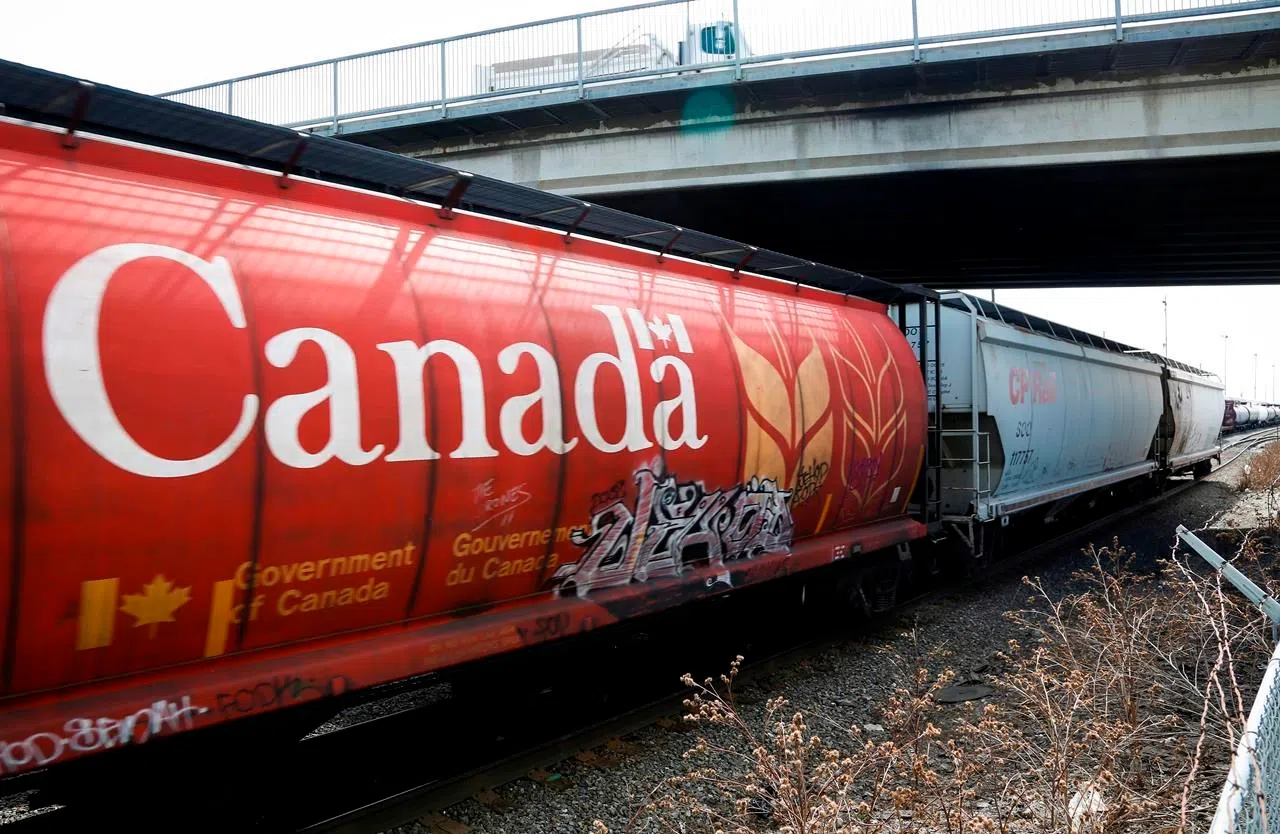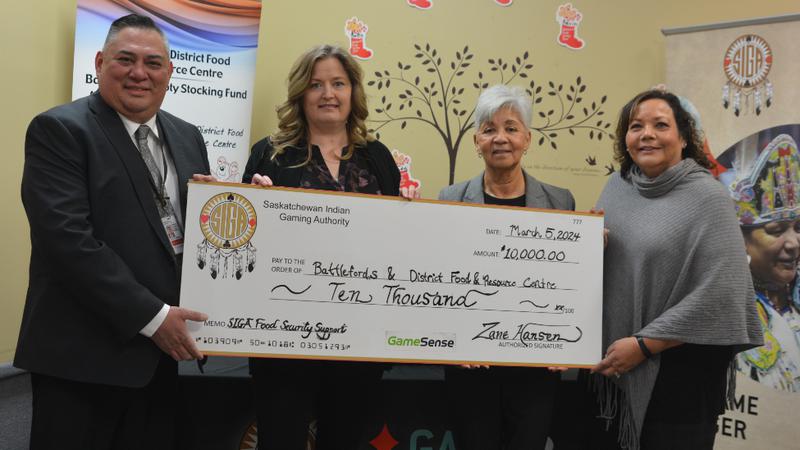
Farmers feel federal transport minister heard concerns over grain transportation
SASKATOON — Farm groups say they think federal Transport Minister Marc Garneau heard their concerns about moving grain by rail and they’ll wait to see if changes are on track.
Garneau and federal Agriculture Minister Lawrence MacAulay held a meeting Thursday in Saskatoon with more than a dozen farm groups as part of the development of a long-term plan for transportation in Canada.
Jim Wickett, chairman of the Western Canadian Wheat Growers Association, said they told Garneau about the need for competition in the rail industry and accountability.
“It was pointed out by lots of groups that the only person in the entire value chain that is not accountable is the rail. And if they’re late, they still charge the exact same rate as if they were early,” said Wickett.


